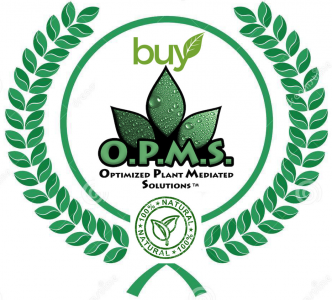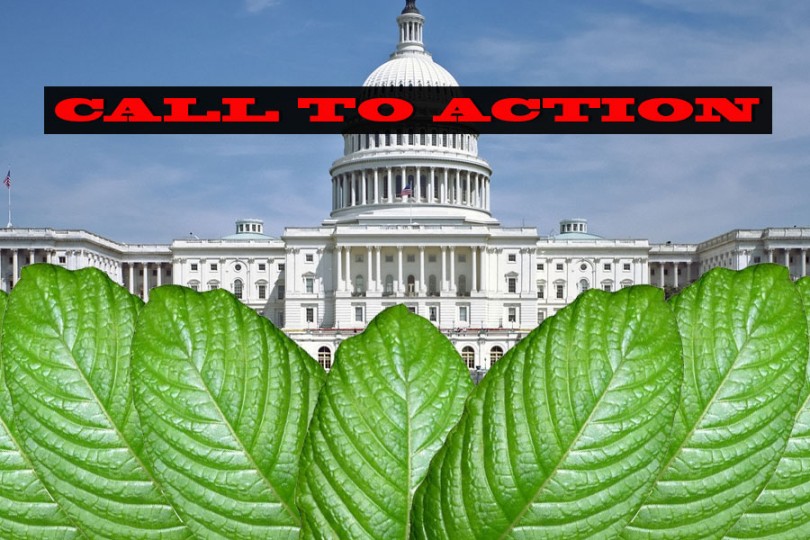The overprescription of powerful opioid drugs to treat everything from back pain to arthritis has resulted in an unprecedented crisis of overdose and death in the U.S. Even when taken as directed, prescription opioids can lead to addiction as well as tolerance, which means you need an increasingly stronger dose to get the pain-relieving effects. Physical dependence, in which you suffer withdrawal symptoms if you stop taking the drugs, is common.1
In fact, more than 91 Americans fatally overdose on opioids every day.2 The statistic includes prescription opioids, heroin and fentanyl, but many of the deaths stem from prescription drug use. Of the more than 33,000 Americans killed by opioids in 2015, nearly half of them involved a prescription for the drugs.3
However, rather than cracking down on the prescription opioids that are the root of the problem, the U.S. Food and Drug Administration (FDA) is going after a natural plant called kratom (Mitragyna speciosa), even going so far as to issue a warning that consumer groups say is patently false.
FDA Warns of ‘Deadly Risks’ Associated With Kratom
Kratom is a plant native to Thailand, Malaysia, Indonesia and Papua New Guinea, which has become popular as an opioid alternative in the U.S. Leaves from the kratom tree have been used for pain relief for hundreds of years, but scientists now know they contain compounds that target the brain similarly to opioids, helping to relieve pain.
Unlike opioid drugs, however, which can cause slowed breathing, or respiratory depression that’s deadly (respiratory depression is the leading cause of opioid overdose deaths), kratom does not appear to cause this effect.
In an animal study published in the Journal of Medicinal Chemistry, researchers noted that, compared to morphine, kratom use did not result in tolerance and physical dependence or respiratory depression, suggesting it “might represent a promising new generation of novel pain relievers.”4
In short, it appears the plant may be safer than opioids for pain relief and could even act as a tool to help those suffering from opioid withdrawal. In November 2017, however, the FDA issued a public health advisory regarding risks associated with kratom use, suggesting that its usage could “expand the opioid epidemic” and stating:5
“Calls to U.S. poison control centers regarding kratom have increased tenfold from 2010 to 2015, with hundreds of calls made each year. The FDA is aware of reports of 36 deaths associated with the use of kratom-containing products. There have been reports of kratom being laced with other opioids like hydrocodone.
The use of kratom is also associated with serious side effects like seizures, liver damage and withdrawal symptoms … Before it can be legally marketed for therapeutic uses in the U.S., kratom’s risks and benefits must be evaluated as part of the regulatory process for drugs that Congress has entrusted the FDA with.”
American Kratom Association Calls for FDA to Withdraw ‘Discredited’ Advisory
The American Kratom Association (AKA) is a nonprofit consumer group that represents more than 3 million adult consumers of kratom in the U.S. They’ve filed a formal dispute resolution petition with the FDA and the U.S. Department of Health and Human Services to challenge the FDA’s advisory.
According to AKA’s petition, the public health advisory “contains numerous unsubstantiated and inaccurate statements … and therefore must be rescinded immediately.” The petition took issue with the FDA’s claim that kratom is associated with 36 deaths, stating:
“Kratom consumption has not emerged as a public health or medical problem for adults or children despite more than two decades of rapidly increasing consumption by millions of Americans served by approximately 10,000 vendors.
Specifically, among the 3-4 publicly documented deaths that have ever been suspected to possibly have involved the consumption of kratom, none have been shown to merit designation as a kratom overdose death and all have involved either other substances or physical or mental health conditions that may have been the primary causes of, or significant contributors to, the death.
Remarkably, no deaths, serious adverse effects, or emergency department exposures have been reported in children. It is important to understand that this conclusion does not mean that such events have never or will never occur, but the signal for a public health problem associated with kratom marketing and consumption is very weak.”6
Further, while the FDA claims that kratom is associated with serious side effects to opioids and presents significant safety issues, AKA points out that its risk profile appears far safer than that of opioids or even other pain relievers like acetaminophen:
“Consumption of kratom products appears to provide positive benefits such as relief of pain and fatigue without the adverse consequences produced by other products that are used for similar purposes as reported in the appended testimonials and over a century or more of documented consumption in Southeast Asia.
For example, liver disease caused deaths associated with the use of acetaminophen is a serious problem in the U.S., and there are problems of serious GI side effects and cardiovascular problems associated with the use of nonsteroidal anti-inflammatory drugs (NSAIDS).
At the far extreme, there is the inherent risk of overdose and serious addiction associated with the use of opioids. For those who manage various ailments with kratom instead of such products, the benefit to risk ratio appears favorable.”
‘Eight-Factor Analysis’ Points to Kratom’s Safety Compared to Opioids
The FDA advisory is not the first time kratom has been attacked by the U.S. government. In August 2016, the U.S. Drug Enforcement Administration (DEA) issued a notice saying it was planning to ban kratom and list it as a Schedule 1 controlled substance. However, following massive outrage from kratom users who say opioids are their only alternative, the agency reversed its decision.
In November 2016, AKA also released a report by Jack Henningfield, Ph.D., vice president of research, health policy and abuse liability at PinneyAssociates, concluding that there is “insufficient evidence” for the DEA to ban or restrict kratom under the Controlled Substances Act (CSA). The report analyzed the eight factors of the CSA, concluding the DEA had no grounds for CSA scheduling of kratom, let alone a ban:
“Based on all lines of evidence considered in the 8-factor analysis, kratom’s potential for abuse, tolerance, and dependence is lower than that of many schedule IV and V drugs and is well within the range of many nonscheduled drugs and substances (e.g., caffeine, nasal nicotine spray, fluoxetine, bupropion, dextromethorphan).
Although kratom and its primary alkaloids MG and 7-OH-MG share certain characteristics with controlled substances, as do many nonscheduled substances, there does not appear to be a public health risk that would warrant control of kratom products or their alkaloids under the CSA.”7
In fact, AKA noted that according to Henningfield’s analysis, “kratom’s potential for abuse and dependence is no greater than such widely used and unscheduled substances as “nutmeg, hops, St. John’s Wort, chamomile, guarana and kola nut.” This isn’t to say that kratom usage is without risk.
It’s important to recognize that kratom is a psychoactive substance and should not be used carelessly. There’s very little research showing how to use it safely and effectively, and it may have a very different effect from one person to the next.
Also, while it may be useful for weaning people off opioids, kratom is in itself addictive. So, while it appears to be a far safer alternative to opioids, it’s still a powerful and potentially addictive substance. So please, do your own research before trying it. That said, it does appear that the FDA’s claims of deaths from kratom are unsupported.
New York, Florida ‘Kratom Deaths’ Unsupported by Facts
As mentioned, many of the deaths attributed to kratom may have actually been due to other causes. AKA detailed two such cases, which were debunked after an analysis by lawyer and molecular biologist Jane K. Babin, Ph.D. The first involved the death of police Sgt. Matthew Dana in Tupper Lake, New York, who died from hemorrhagic pulmonary edema with the presence of mitragynine (kratom’s primary constituent) in his blood. The report noted:
“Mitragynine alone has never been found to cause hemorrhagic pulmonary edema, nor any death, and has only been implicated when other substances or conditions sufficient to cause death were present.
The Coroner and Medical Examiner erred in not analyzing blood for substances other than opioids and narcotics including cocaine and anabolic steroids, which could have caused the death, and for presuming kratom caused Sgt. Dana’s death without considering known causes of sudden death from hemorrhagic pulmonary edema.”8
The second death involved Christopher Waldron in Hillsborough County, Florida, who was found to have mitragynine and two prescription drugs, citalopram and cyclobenzaprine, in his system. According to the report:
“Both of these prescription medicines contain specific warnings required in FDA labeling that, if used in combination, can cause coma and even death. In addition, the kratom brand and product Mr. Waldron is believed to have consumed has been known to be counterfeited, and often adulterated with toxic substances. Mr. Waldron also had left ventricular hypertrophy, an enlarged liver, and thyroid disease, which may have contributed to his death.
The Medical Examiner rushed to judgment when opining that the active compound in the botanical supplement, kratom, caused Mr. Waldron’s death, despite numerous findings that point to sudden death from drug-induced Long QT Syndrome, Torsade de Pointes and/or Serotonin Syndrome, exacerbated by pre-existing heart disease, thyroid disease and possible liver disease.”9
In another example, a Tennessee news outlet broadcast a quote from a Georgia county coroner claiming there had been 17 deaths linked to kratom in Georgia in 2017. AKA has called on the TV station to retract the “fake news” report, as they say there is nothing in the public medical record showing even one death linked to kratom.10
FDA Cracks Down on Canadian Drug Imports
The FDA is not only cracking down on kratom — a plant that appears to offer much potential for pain relief with a far better safety profile compared to opioids. It’s also going after stores that help U.S. consumers get drugs from outside the U.S., including Canada. The stores in question are located in Central Florida and help consumers order drugs from Canadian pharmacies at prices much lower than those in the U.S.
Most of the customers are elderly people who don’t want to order the drugs online, and the stores require that customers have a valid prescription to order, as well as use foreign pharmacies certified as safe by the Canadian International Pharmacy Association. As noted by KHN news, “The drugs from foreign pharmacies often are made in the same manufacturing plants around the world as drugs sold in U.S. pharmacies,”11 they’re just much cheaper when they’re bought from Canada as opposed to the U.S.
The FDA, however, claims that ordering drugs from foreign pharmacies poses a safety risk and, as such, raided nine storefronts in October 2017, seizing computer files, customer records and financial and banking information.
Some of the stores have been helping consumers get less expensive medications for 15 years and now fear they will be forced to shut down. “It’s a shame because this will drive people who are not competent using the internet to buy from rogue websites,” Roger Bate, a health economist with the think-tank American Enterprise Institute, told KHN news.12
FDA Facilitates ‘Drug Care System’ Instead of Health Care System
While targeting kratom and people who seek to get less expensive drugs from outside of the U.S., the FDA continues to protect opioids and was instrumental in facilitating the opioid crisis to begin with. It wasn’t long ago — during the 1980s and 1990s — that many prominent physicians and health organizations urged the use of opioids for chronic, noncancer pain, even going so far as to state that the risk of misuse and addiction was low.
The game-changer occurred in 1995, when Purdue Pharma received FDA approval for extended-release oxycodone (Oxycontin) for the management of moderate to severe pain. The company launched an extensive marketing blitz surrounding the drug, including doubling its marketing team and paying $40 million in bonuses, offering free initial supply coupons to patients, and hosting “all-expenses-paid pain management and speaker training conference at lavish resorts” for clinicians.
The drug became a blockbuster, in large part due to non-rigorous patenting standards and lack of policing of fraudulent marketing. A Harvard study, “The Opioid Epidemic: Fixing a Broken Pharmaceutical Market,” explains that the overprescription of opioids was, and continues to be, a fundamental cause of the opioid epidemic, noting that such prescriptions rose 104 percent from 2000 to 2010.13,14
In 2015 alone, the report noted, about 300 million prescriptions for opioids were written, which is more than one for every U.S. adult. Where was (and is) the FDA and other public health agencies while all of this was occurring? Apparently looking the other way. The Harvard report noted:15
“Purdue’s success was attributable in part to low patenting standards that enabled the company to secure and extend market exclusivity for extended-release oxycodone, providing motivation for its aggressive marketing.
A history of tepid enforcement against pharmaceutical companies engaging in illegal marketing further incentivized Purdue to make false claims about the safety and effectiveness of the drug. Both practices helped drive opioid overuse and misuse, with tragic public health consequences.”
Even now, as AKA notes, the FDA’s targeting of a natural substance in the midst of a prescription opioid crisis is not only misleading but dangerous: “For years, the FDA has willfully published scientifically inaccurate information on the health effects of consuming kratom, directly influencing regulatory actions by the DEA, states and various local government entities. AKA believes the FDA health advisory on kratom will lead to more state and local bans, all based on discredited, incomplete and mischaracterized scientific claims.”16
If you’d like to express your opinion about the FDA’s misguided kratom warning, you can do so via the AKA’s call to action page.17Meanwhile, if you’re looking for safer options for pain relief than opioid drugs, please see these options for treating pain without drugs.
Article written By Dr. Mercola (articles.mercola.com)


















